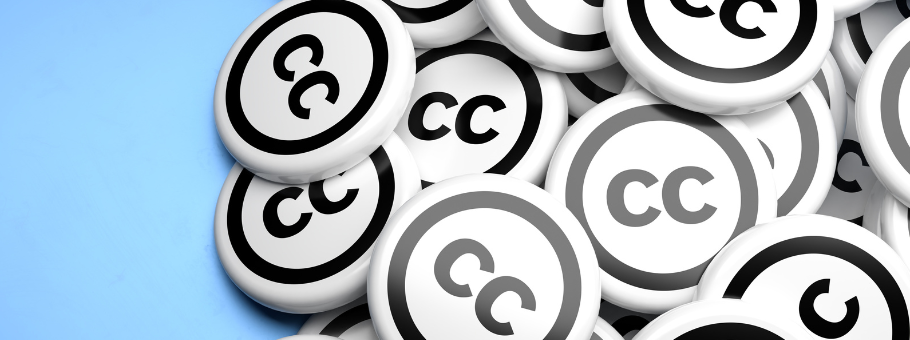Knowledge Ownership and Global Equity: Redefining openness in science

Introduction
This Open Access Week 2025 we were confronted by a critical question: “Who Owns Our Knowledge?” This year’s theme invited us to reflect on what true openness really means for researchers around the world. Openness in science is about much more than free access to information; it is about equity, trust, shared participation, and, fundamentally, the distribution of intellectual power.
While open science has transformed how we collaborate and share, the progress is often uneven. For many in low- and middle-income countries, structural barriers persist, limiting full participation. To move forward into a truly equitable paradigm, we must ensure that openness addresses not just access to content, but access to the opportunity to create, verify, and own that content.
Reproducibility and Power: Who controls the verification?
The concept of the reproducibility gap highlights the divide between research that can be verified and research that cannot. Open data repositories have increased transparency, but they have not automatically guaranteed reproducibility, which is where the question of ownership truly begins.
When datasets are shared without adequate documentation or standardized formats, the ability to interpret or reuse them often remains restricted to the original researchers or those in well-resourced institutions. This issue is deeply intertwined with equity, as recent findings show that researchers in the Global South often face significant challenges in reproducing findings compared to their counterparts in the Global North, highlighting a biased system that favors well established community members (Kottarou et al., 2025).
If only a handful of well-funded institutions possess the infrastructure and skills to verify and validate scientific claims, then they effectively hold the power and therefore, the ownership over the resulting knowledge. We must recognize that the evidence base for which open science interventions genuinely improve reproducibility remains limited, demanding a clearer focus on tested, grass-roots educational and institutional solutions (van der Zee et al., 2025). Decentralizing this power requires making computational transparency a non-negotiable standard.
The Infrastructure of Ownership: Investing in local capacity
A truly open science ecosystem depends on robust local capacity, the infrastructure, knowledge, and confidence that enable researchers everywhere to contribute meaningfully. If knowledge ownership is to be distributed globally, the investment must be in people first: developing skills, mentorship, and sustainable institutional support.
In many regions, researchers still face foundational challenges such as unreliable internet access, limited funding, or a lack of training in modern data management. Addressing these barriers requires shifting from top-down solutions to collaborative partnerships that value and elevate local expertise (ISC, 2024). The development of regional initiatives, such as the African Open Science Platform (AOSP), is a critical step, fostering South-South networks that create critical mass through shared capacities and amplify the impact of solutions-oriented research (ISC, 2024).
Focusing on open capacity through community workshops, locally hosted data repositories, and mentorship networks fosters ownership and sustainability. It empowers researchers to move decisively from being knowledge consumers to becoming influential knowledge creators, challenging the donor-recipient model of the past.
Beyond Metrics: Who gets to shape the knowledge agenda?
Global participation in research has too often been narrowly framed in terms of publication metrics and citation counts, which are themselves indicators of a Western centric system of ownership. True participation means having a voice and influence in setting research agendas, defining data standards, and shaping how openness evolves not merely filling pages in commercial journals.
This year’s theme directly challenges the growing threats to community ownership, including the rush to scrape academic knowledge to train Artificial Intelligence models without proper consultation or author consent (SPARC, 2025). Furthermore, the push to align research funding with international political imperatives can reinforce structural inequalities between Northern and Southern institutions (Sami, 2024).
Rethinking global participation also means actively supporting community-owned, community-led, and non-commercial approaches like Diamond Open Access (DOA), as affirmed by the Toluca–Cape Town Declaration. DOA reaffirms that scholarly knowledge must be a public good, free of barriers for both readers and authors, providing a practical pathway to ensure the social justice and equity required for genuine knowledge ownership (AfLIA, 2025).
Conclusion
As Open Access Week 2025 called on us to ask, “Who Owns Our Knowledge?”, the answer must be everyone. The most valuable outcome of open science is not faster publishing; it is the shared and equitably owned understanding of the world. To close power disparities, we must make reproducibility practical and teachable. To build local capacity, we must invest in people as much as in technology. And to ensure global participation, we must listen to every voice, recognizing that ownership begins with having a seat at the table.
If openness is to live up to its promise, it must evolve from being a mere policy to a daily practice a continuous commitment to inclusion, empathy, and collaboration. By embedding equity into the foundation of scientific practice, we can build a global research community that is not only open in access but is also fundamentally fair in spirit and structure.
References
- AfLIA. (2025). SPARC Africa Open Access Week 2025 Webinar Series.
- ISC. (2024). Open Science in the Global South. International Science Council.
- Kottarou, S., Karadimas, T., et al. (2025). Reproducibility and replicability in research: What 452 professors think in Universities across the USA and India. PLOS ONE.
- Sami, A. (2024). Rethinking research practices from the Global South. GH.
- SPARC. (2025). Theme for Open Access Week 2025 Asks “Who Owns Our Knowledge?”
- van der Zee, E., et al. (2025). Open science interventions to improve reproducibility and replicability of research: a scoping review. Royal Society Open Science.









